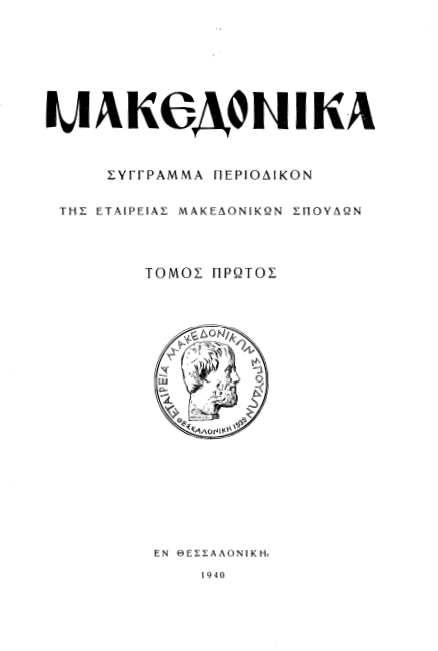Les élections de μουχταροδημογεροντία (=conseil municipal) à Blatsi (départ de Kozani) en 1888
Abstract
La petition publiée présente l’état de la violence de la falsification et de Γ anomalie aux élections des anciens du village (= μουχταροδημογεροντία) à Blatsi pendant la domination ottomane pour qu’ils puissent gagner tant bien que mal aux élections de la communauté. Mais, de l’autre côté, nous suivons le combat opiniâtre et la résistance acharné de la parti inverse, qui ne s’inclinait point devant le fait accompli et qu’il ténait tête aux compétiteurs. La petition publiée nous indique que les élections se faisaient d’abord aux quartiers et que le candidat devait régler un impôt décisif; alors, il devenait solvable. D’ailleurs,comme les impôts étaient payés parla Commun pour chaque quartiertes ancients du village qui n’étaient pas solvables il payaient par leurs impôts; alors la Commun réglait la somme dû de nouveau.
Article Details
- How to Cite
-
Τσάρας Γ. (1974). Les élections de μουχταροδημογεροντία (=conseil municipal) à Blatsi (départ de Kozani) en 1888. Makedonika, 14(1), 50–54. https://doi.org/10.12681/makedonika.566
- Issue
- Vol. 14
- Section
- Articles

This work is licensed under a Creative Commons Attribution-NonCommercial-ShareAlike 4.0 International License.
Authors who publish with this journal agree to the following terms:
- Authors retain copyright and grant the journal right of first publication with the work simultaneously licensed under a Creative Commons Attribution Non-Commercial License that allows others to share the work with an acknowledgement of the work's authorship and initial publication in this journal.
- Authors are able to enter into separate, additional contractual arrangements for the non-exclusive distribution of the journal's published version of the work (e.g. post it to an institutional repository or publish it in a book), with an acknowledgement of its initial publication in this journal.
- Authors are permitted and encouraged to post their work online (preferably in institutional repositories or on their website) prior to and during the submission process, as it can lead to productive exchanges, as well as earlier and greater citation of published work (See The Effect of Open Access).













